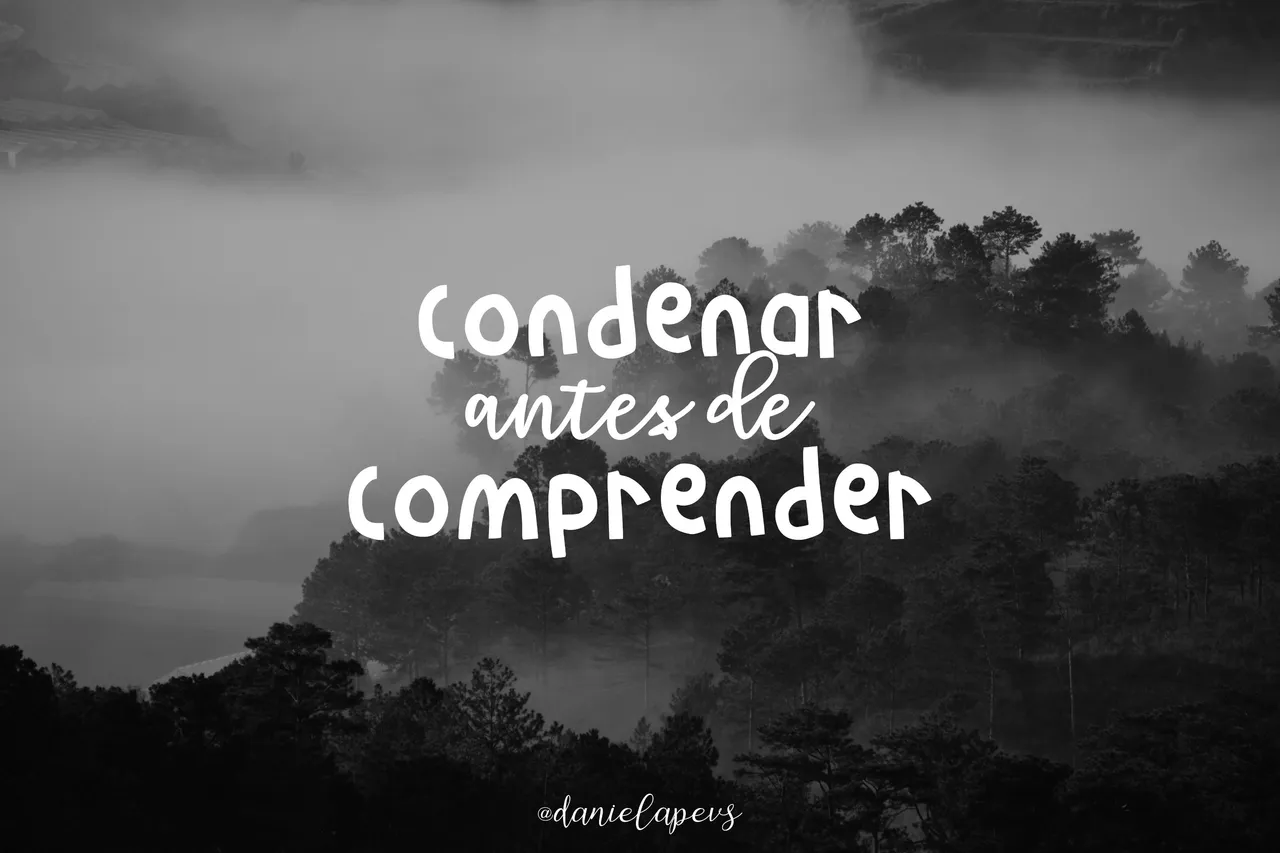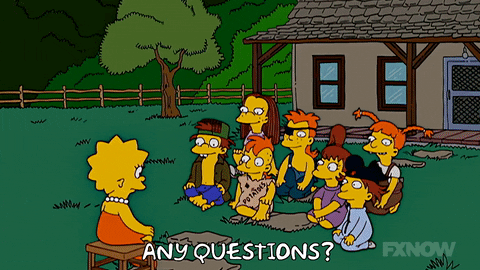Este post está escrito en dos idiomas y dividido para facilitar la lectura.


Cuando la información es nueva, más allá de procesarla, de forma inmediata la rechazamos violentamente. O por lo menos eso es lo que la gran mayoría de las personas hace, al enfrentarse a escenarios completamente desconocidos.
Hace unos días tenía planeado hablar sobre la intolerancia que existe en los grupos sociales a diario de forma directa. Pero consideré darle un punto más pragmático, en dónde más allá de ir hacía el enfoque de la intolerancia, iremos al punto en el que se condena lo que se desconoce.
¿Por qué lo expreso de éste modo? Básicamente porque entendemos como intolerancia a todo aquello que no aceptamos, sin embargo, si que podemos conocerlo. Ésta abarca de igual manera el faltar el respeto a las personas, humillarlas o ignorarlas, sólo porque exista algo en su esencia que sí conocemos, pero decidimos rechazar abruptamente.

When information is new, beyond processing it, we immediately reject it violently. Or at least that is what the vast majority of people do when faced with completely unfamiliar scenarios.
A few days ago I had planned to talk about the intolerance that exists in social groups on a daily basis in a direct way. But I considered to give it a more pragmatic point, where beyond going to the intolerance approach, we will go to the point where we condemn what is unknown.
Why do I express it this way? Basically because we understand as intolerance everything that we do not accept, however, we can know it. It also includes disrespecting people, humiliating them or ignoring them, just because there is something in their essence that we do know, but we decide to reject abruptly.


En cambio, haciendo énfasis en el título de éste post, cuando hablo de «condenar antes de comprender» me refiero al miedo inherente y violento que existe ante lo desconocido. Cuando una idea nueva llega a nuestra sociedad, bien sea oral o visual, existe un incesante rechazo colectivo que, muchas veces puede traducirse a noticias amarillistas para desprestigiar o satanizar por completo a la información.
Un ejemplo de esto se puede observar cuando la industria del séptimo arte tomo gran parte del globo terráqueo y muchas personas satanizaron a las películas como mal influyentes, tan sólo por no querer comprender a la información.
Se decía en ese entonces que el cine volvía a las personas violentas, promiscuas o atontadas. Justo como sucede a día de hoy con las redes sociales, los videojuegos y demás.
On the other hand, emphasizing the title of this post, when I speak of «condemning before understanding» I am referring to the inherent and violent fear that exists in the face of the unknown. When a new idea reaches our society, whether oral or visual, there is an incessant collective rejection that, many times, can translate into yellow news to discredit or completely demonize the information.
An example of this can be seen when the seventh art industry took over a large part of the globe and many people demonized movies as bad influencers, just because they did not want to understand the information.
It was said at that time that movies made people violent, promiscuous or stupid. Just as it happens today with social networks, video games and so on.


Pero ahora llevemos éste tema a escenarios más minúsculos. La condenación la podemos observar en nuestro día a día cuando en nuestro grupo de amigos hay temas que simplemente no se pueden tocar, o en nuestro núcleo familiar.
Un ejemplo de ello que, estoy segura que has enfrentado, es cuando sacamos un tema a colación que inmediatamente descoloca a la otra persona y la pone a la defensiva. Ahí se compaginan la intolerancia y la condenación.
A partir de éste «pensamiento» arraigado del rechazo a la comprensión, es dónde nace lo que conocemos como «la controversia», los tabúes y lo que no es correcto decir.
But now let's take this issue to more minuscule scenarios. We can observe the condemnation in our daily life when in our group of friends there are topics that simply cannot be touched, or in our family nucleus.
An example of this, which I'm sure you've faced, is when we bring up a topic that immediately throws the other person off guard and puts them on the defensive. That's where intolerance and condemnation come together.
From this ingrained «thinking» of refusal to understand, is where what we know as «controversy», taboos and what is not right to say, is born.


Con el paso de los años, éste «mecanismo de defensa para los propios ideales» se ha hecho protagonista de grupos sociales masivos, en dónde la censura pasó a ser el plato fuerte de la mesa.
Pero la verdad, no deseo terminar éste post de un forma trágica o como si realmente éste no tuviese solución, de hecho, si la hay y, es más sencillo de lo que parece. Simplemente debemos aprender a salir de nuestra caja de pensamientos e intentar internalizar el hecho de que todas las conversaciones pueden ser servidas en la mesa, pueden ser debatibles y que tus pensamientos SIEMPRE pueden ser cuestionados.
Over the years, this «defense mechanism for one's own ideals» has become the protagonist of massive social groups, where censorship became the main dish on the table.
But the truth is, I do not wish to end this post in a tragic way or as if it really has no solution, in fact, there is, and it is simpler than it seems. We simply must learn to step out of our box of thoughts and try to internalize the fact that all conversations can be served at the table, can be debatable and that your thoughts can ALWAYS be challenged.


Esto no quiere decir que cambiarás tus ideas por la de otros, aunque el debate sí que puede servirte para la obtención de información. Realmente lo único que esto significa es que serás una persona tolerable, abierta y comprensible. Ya que puedes entender las ideas y pensamientos de otros desde la empatía, sin cometer de pronto una falacia ad hominem por haberte dejado llevar por la intolerancia.
Te dejo algo en qué pensar y te deseo una feliz noche.
This is not to say that you will change your ideas for that of others, although debate can be useful in gaining information. All this really means is that you will be a tolerable, open and understanding person. Since you can understand the ideas and thoughts of others from empathy, without suddenly committing an ad hominem fallacy for having been carried away by intolerance.
I leave you something to think about and wish you a happy evening.

Signature made in canva
Translated with the help of deepL
Photo edited in Adobe Photoshop CC

